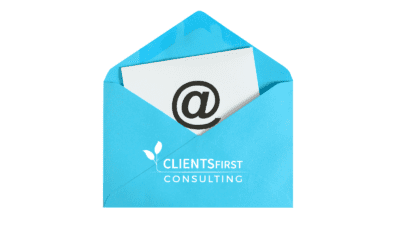Five Ways to Use Advanced eMarketing and CRM Features in Business Development

Integrating eMarketing and CRM isn’t just a good-to-have feature in your marketing and business development efforts; it’s essential for optimizing client outreach and maintaining data quality.
Nurturing and growing your client base is essential to the success of your firm, but you cannot do this without a comprehensive eMarketing and CRM strategy that utilizes one or more of the advanced features each system has to offer.
With the right strategy in place, you can create a symbiotic relationship between the two systems that can open up a plethora of opportunities to optimize marketing and business development efforts while effortlessly maintaining up-to-date data on your contacts.
Before investing hundreds, or thousands of dollars into developing your eMarketing and CRM system, it is important to know which of the advanced features and functions work for your firm and will contribute to achieving its goals. Here’s a closer look at some considerations you should keep in mind when using and testing the various advanced features of eMarketing and CRM systems in your business development efforts:
1. Analytics
An integrated eMarketing and CRM system can give you powerful analytics on campaign performance and can help you refine the content you send to contacts. While many eMarketing systems have out-of-the-box functionality providing users with generic reports, integrated systems offer data visualization tools and comprehensive metrics on individual contacts allowing firms to identify trends and patterns among their target audience.
These advanced insights help firms understand who is opening and clicking emails, and who is unsubscribing from communications. They also provide audience segmentation recommendations, helping firms create a more personalized follow-up approach, advancing business development and encouraging CRM adoption.
2. Bounceback Management
Post-campaign, identifying contacts with invalid email addresses within your CRM is crucial for maintaining data quality. Bounces and returns are real-time data quality indicators that help you stay on top of your data’s health. By itself, your email marketing system will likely suppress the bounced emails from future mailings.
A well-integrated system allows for the automatic removal of these suppressed contacts, ensuring they do not receive further communications until their email addresses are updated. This type of system helps firms follow email communication best practices and are less likely to be labeled as spam or hurt their sender’s reputation. Without this meaningful integration, firms are left with the task of manually removing, updating and re-engaging these contacts, which comes with various difficulties and challenges.
3. Automation
Some email marketing systems can automate various time-consuming manual processes that can streamline a firm’s marketing workflows, save time and reduce the risk of human error. However, a seamless integration between the two systems can enhance these automated communications by utilizing client data from the CRM. Systems can be configured to communicate with clients based on engagement levels and responses to previous communications using personalized, targeted messages.
They can also be used to automate processes related to list segmentation, like adding new contacts to lists, segmenting contacts based on predefined criteria, and removing unsubscribes and bounced emails. A tight integration between the two systems allows law firms to shift their focus from repetitive and menial tasks to more strategic projects.
4. Event Management
An integrated email marketing and CRM system can revolutionize a firm’s event management strategy. When implemented and integrated properly, firms can streamline the planning process, manage attendee data and promote events to targeted mailing lists without all the headaches caused by isolated systems.
Law firms can use their email marketing and CRM system to manage event registration and ticketing, allowing attendees to sign up and pay for events directly from their email. The RSVPs then flow back to the CRM where they are recorded and reported on. They can also use the system to manage attendee data, such as contact information, attendance history and feedback. This can help them to personalize their communication with attendees and improve their overall experience.
5. Seek Expertise
Evaluating or re-evaluating your eMarketing and CRM system isn’t a journey you have to embark on alone. There are many organizations out there that have years of experience helping firms select and implement the right technology, and integrate various tools into their marketing technology infrastructure. These organizations can also help you come up with a CRM and eMarketing success strategy and define efficient processes to streamline marketing technology tasks.
Integrating eMarketing and CRM systems can be an expensive and challenging task. Before you dedicate valuable resources to a project like this, it is important to recognize if the features and functionality of the integrated systems will work for your firm and contribute to achieving its goals. To help recognize what works for your firm, remember to consider the following:
- Comprehensive analytics are paramount for personalized follow-ups and informed decision-making.
- Efficient bounce-back management safeguards your data quality and ensures consistent communication.
- Seamless automation, rooted in CRM data, can elevate your email engagement rates.
- A well-integrated system simplifies event management, from invitations to insights.
- Leveraging expertise in system evaluation and implementation can significantly amplify the ROI of your technology investments.
For almost 20 years, the team at CLIENTSFirst Consulting has been helping professional services firms and other organizations successfully select and implement CRM and eMarketing systems to maximize value, adoption and return on investment. If you need help with CRM Success, please contact us at 404-249-9914 or Info@ClientsFirstConsulting.com.







